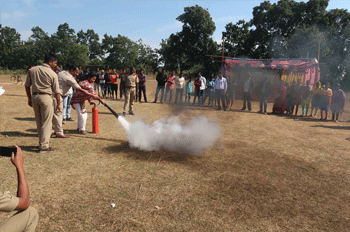Women’s organisation for Socio-Cultural Awareness (WOSCA)
Our History
WOSCA began in 1993, empowering women through health, livelihood, and community development initiatives in Odisha.
Empowering
Women’s Lives
In the early nineties, a group of young women wanted to do something for needy and neglected women of the society. No doubt it was very difficult at that time under grim illiteracy, social superstitions and religious dogmas. But their self-determination and strong will power did not affect them much. Their firm resolution was translated into action with the establishment of WOSCA that was working silently for 2 years without any official status.
On 20th December 1993, it was stamped with official recognition by the virtue of registration in the court of ADM-cum-Addl. Registrar of Societies in Koenjhar district of Odisha state. WOSCA firmly believe to be an active change maker in building the capacities of vulnerable women and through micro level engagement and progressing positively to bring meaningful change in the life of targeted beneficiaries.

Building Stronger Communities
In the year 2003, organization scaled up its journey by undertaking various projects namely watershed management project, food security and empowerment project, agri-based livelihood program, integrated nutrition and health project, income generation activities focusing on SHGs (Self Help Group), cluster development project on jute craft and terracotta, rural livelihood entitlements tracking through real time monitoring system, forest based livelihood security programme and various other projects collaborating with government, non- government and international funding agencies.
Stages of work
During the middle part of 1998, WOSCA started to diversify its activities towards health and environment. Health camps, eye camps, environmental awareness, marketing of NTFP, etc.
Gradually, 2003 onwards WOSCA started to visualize its objectives in broader terms and involved itself in multifarious developmental activities through need-based programs i.e., women empowerment through promotion of self-help groups and providing them different support service trades. NRM and Bio diversity conservation programes to promote cleaner environment and also stepped its effort in the areas of food security for the poor and deprived sections of the society.
Besides, it has begun its capacity building efforts to empower cross sections of the society at village level so that they can be instruments of change and participate in the development process. Strengthening of institutional system for improvement of service delivery through community empowerment is one of the focused areas for intervention and we are working on it.







